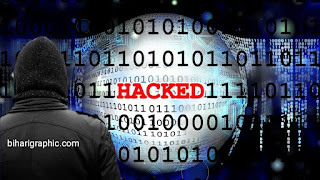How can I Start Learning Ethical Hacking on with my self in 2023 ?
Learning hacking requires a solid understanding of computer systems, networks, and security. It is important to note that hacking can have both ethical and unethical applications, so it is crucial to approach it responsibly and ethically. Below is a comprehensive guide on how to start learning hacking, along with a conclusion highlighting important considerations.
If you’re interested in learning ethical hacking on your own in 2023, here are some steps you can take to get started:
- Research and understand the basics: Begin by familiarizing yourself with the concepts, terminologies, and principles of ethical hacking. Understand the difference between ethical hacking and malicious hacking. Look for online resources, tutorials, and books to gain a foundational understanding.
- Learn computer networking: Networking knowledge is crucial for ethical hacking. Study topics such as IP addressing, TCP/IP protocols, network protocols, subnetting, and firewall concepts. Understanding how networks operate will help you identify vulnerabilities and potential attack vectors.
- Study programming languages: Gain proficiency in programming languages commonly used in hacking, such as Python, JavaScript, and C/C++. Learn the fundamentals of programming and scripting to create tools and automate tasks.
- Explore different hacking techniques: Dive into the various hacking techniques and methodologies. Understand concepts like reconnaissance, scanning, enumeration, vulnerability assessment, and exploitation. Learn about different types of attacks, such as SQL injection, cross-site scripting (XSS), and buffer overflows.
- Set up a lab environment: Create a safe and controlled environment to practice your skills. Set up a virtual machine (VM) using software like VirtualBox or VMware, and install operating systems like Kali Linux or Parrot OS, which come preloaded with hacking tools.
- Participate in online communities: Join ethical hacking forums, communities, and platforms to connect with like-minded individuals, ask questions, and share knowledge. Engaging with others can provide valuable insights, resources, and learning opportunities.
- Follow online tutorials and courses: Take advantage of the numerous online tutorials, courses, and video lectures specifically designed for ethical hacking. Websites like Udemy, Coursera, and Cybrary offer a range of courses, both free and paid, catering to different skill levels.
- Practice on vulnerable systems: Once you have a basic understanding, practice your skills on intentionally vulnerable systems and platforms like Metasploitable, DVWA (Damn Vulnerable Web Application), or Hack The Box. These platforms allow you to legally exploit vulnerabilities in a controlled environment.
- Stay updated with security news: Ethical hacking is an ever-evolving field, so it’s important to stay up to date with the latest security vulnerabilities, tools, and techniques. Follow security blogs, podcasts, and newsletters to remain informed about the latest trends and advancements.
- Obtain certifications: While not mandatory, certifications like Certified Ethical Hacker (CEH), Offensive Security Certified Professional (OSCP), or CompTIA Security+ can validate your skills and knowledge. These certifications can enhance your credibility and increase your chances of professional opportunities.
Remember, ethical hacking should always be done legally and ethically. Make sure to respect the privacy and security of others, and only perform hacking activities on systems and networks you have proper authorization for.
Establish a Strong Foundation:
- Familiarize yourself with computer basics: Understand how computers work, including hardware, software, and operating systems.
- Learn programming languages: Focus on languages like Python, C++, or JavaScript, which are commonly used in security and hacking.
- Study networking fundamentals: Gain knowledge about TCP/IP, network protocols, IP addressing, and subnetting.
- Learn about Operating Systems and Networks: Study different operating systems (Windows, Linux, macOS): Understand their architecture, file systems, and vulnerabilities.
- Gain knowledge of network protocols (HTTP, FTP, DNS): Understand how these protocols work and their potential vulnerabilities.
Understand Security Concepts:
- Learn about cybersecurity fundamentals: Explore topics like encryption, authentication, access control, firewalls, and intrusion detection systems.
- Study common vulnerabilities and attacks: Understand concepts like SQL injection, cross-site scripting (XSS), buffer overflows, and social engineering techniques.
Ethical Hacking Techniques:
- Learn about ethical hacking: Familiarize yourself with concepts like penetration testing, vulnerability assessment, and ethical hacking methodologies.
- Study tools and frameworks: Explore popular hacking tools like Nmap, Metasploit, Wireshark, and Burp Suite.
Explore Web Application Security:
- Understand web application architecture: Learn about client-side and server-side technologies, web frameworks, and databases.
- Study common web vulnerabilities: Dive into concepts like SQL injection, cross-site scripting (XSS), cross-site request forgery (CSRF), and session hijacking.
Network Security and Wireless Hacking:
- Learn about network security measures: Study concepts like network segmentation, VLANs, VPNs, and intrusion detection systems (IDS).
- Understand wireless security: Explore Wi-Fi security protocols, wireless encryption, and common attacks like Wi-Fi sniffing and deauthentication attacks.
Stay Updated and Practice Ethically:
- Follow cybersecurity news and blogs: Stay informed about the latest security vulnerabilities, breaches, and mitigation techniques.
- Practice in a controlled environment: Set up a virtual lab using tools like VirtualBox or VMware to practice ethical hacking techniques legally and safely.
Conclusion:
Learning hacking is a continuous process that requires a deep understanding of computer systems, networks, and security. It is crucial to approach hacking ethically and responsibly, ensuring that you adhere to legal and ethical boundaries. Remember that hacking skills can be used for both beneficial and malicious purposes, so always prioritize ethical considerations. It’s essential to gain proper knowledge, skills, and certifications, such as Certified Ethical Hacker (CEH), to pursue a career in cybersecurity or ethical hacking. Continuous learning, practicing in controlled environments, and staying up-to-date with the latest trends are key to becoming a proficient and responsible hacker.

